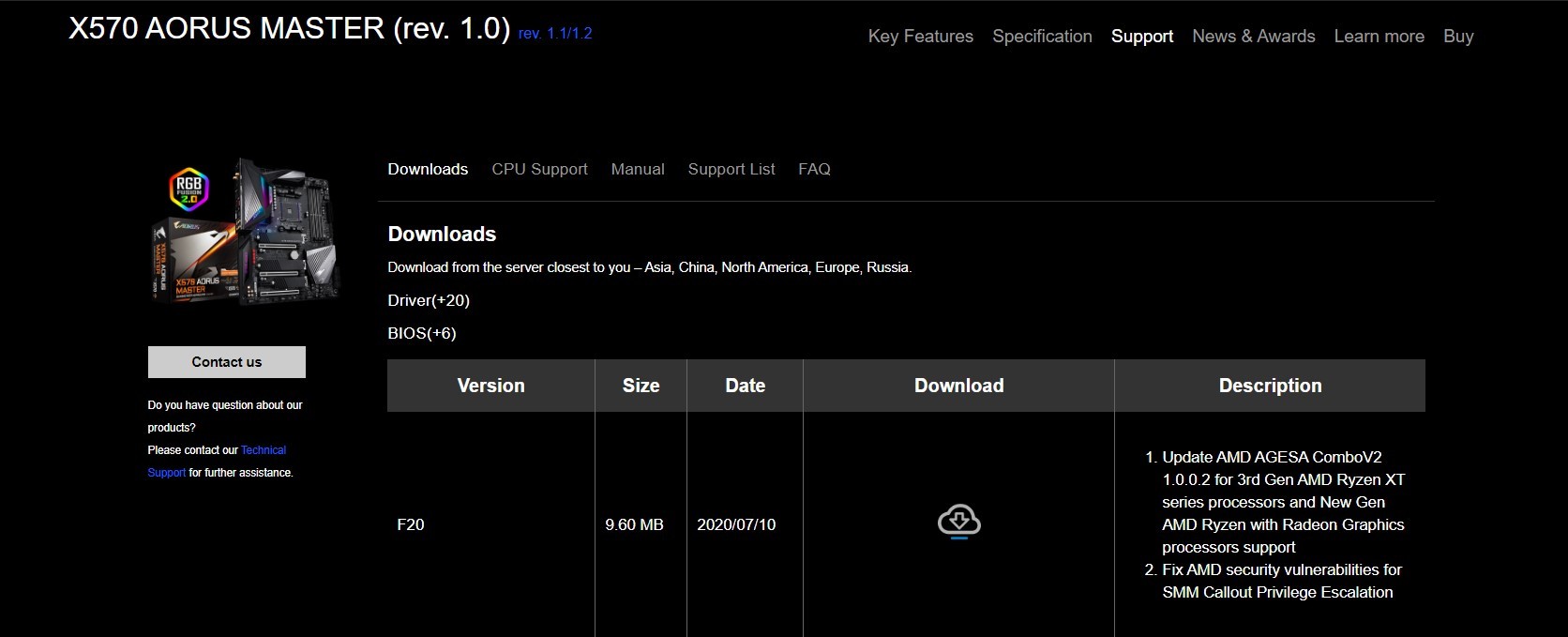If you guys have a GIGABYTE motherboard that’s running AMD processors, here’s an update for you! GIGABYTE has recently pushed a new BIOS update with the latest AMD Generic Encapsulated Software Architecture (AGESA) microcode that fixes a potential security vulnerability on AMD platforms.
Wait, What Security Vulnerability?
Last month, AMD acknowledged a potential security vulnerability for SMM Callout Privilege Escalation related to the AGESA microcode used in the UEFI BIOS for AMD motherboards. The attack required elevated privileges on a system based on select AMD notebook or embedded processors. If the privilege is acquired, the attacker could potentially manipulate AGESA to execute arbitrary code undetected by the operating system.
AMD also mentioned that it should only impact certain clients and embedded APU processors launched between 2016 and 2019. Your desktop might not be at much risk but it is still recommended to update your BIOS to fix any potential security vulnerability.
Also, if you have not updated your BIOS in a while, GIGABYTE also updated its BIOS last month for better support and optimizations for the latest AMD XT CPUs. So if you plan to upgrade to them soon, make sure to update the BIOS too!
Gimme That Update!

Simply search for your motherboard on GIGABYTE’s product page, click on the ‘Support’ tab, and download the latest BIOS update. Also, make sure to read any notes especially the ones written in RED.
To update the BIOS, GIGABYTE simplified the process with its @BIOS, Q-Flash, and Q-Flash Plus software. But if you need help in updating your BIOS, do check out this user guide by GIGABYTE!
Safety First, Guys
Do note that it is very important to make sure to keep the computer powered on during the BIOS flashing process. Otherwise, your motherboard might end up getting bricked! Also, you might not want to update your BIOS during a thunderstorm. That’s not a very big brain move.
If you’re not using a GIGABYTE motherboard, it would be wise to check your motherboard manufacturer’s website to see if they have updated their BIOS with the latest AGESA microcode. After all, we live in an age where we must take every security vulnerability seriously. Stay safe, everyone!






















